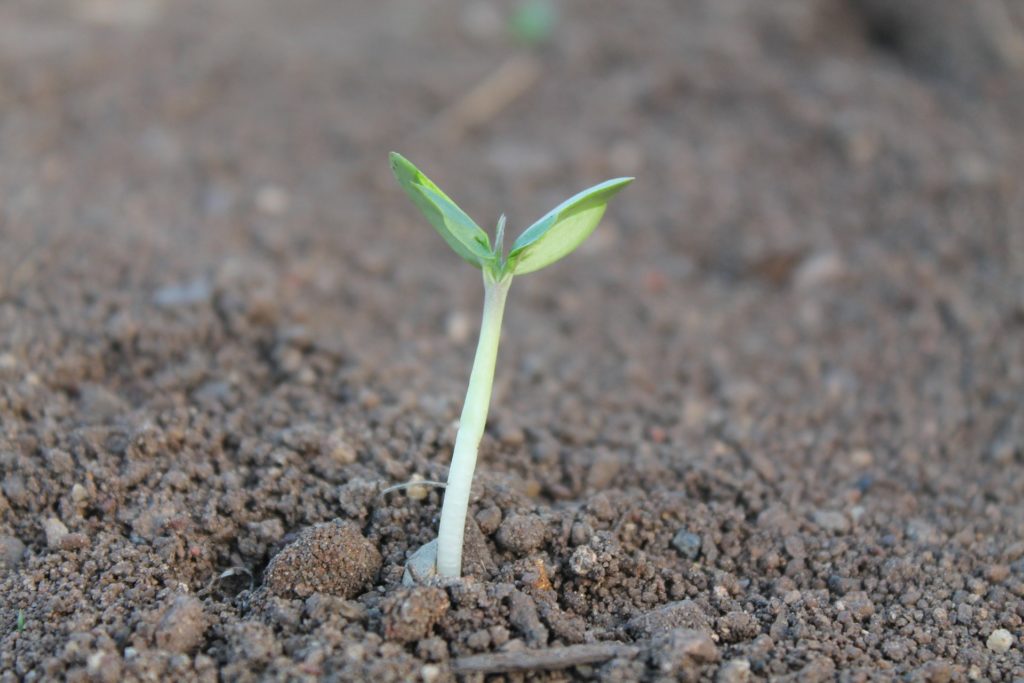
On Sunday I was baptized. On Monday I simply stayed at the Ranch, returning to my tiny house only to collect what few belongings seemed worth holding onto. From a solitary life, I landed abruptly in a communal existence: seldom alone, with rules and expectations that chafed. Three couples were in a leadership role – Weldon and Barbara, with their two children – a girl of perhaps seven and a boy of five. Despite Weldon’s beard, they seemed straight out of suburbia. Pat and Linda were pregnant with their first child. Pat was a big man with black hair and beard; Linda was petite, her blond hair in braids. These two couples lived in the “big house,” which must have once been THE house. It had many features of a city home, though heated only by wood. John and Lesley lived in a small, neat cabin near the communal kitchen/dining room. John also was a big, bearded guy, always smiling, and Lesley was British. She was taskmaster for the women residents, organizing us to sweep the kitchen floor and take turns cooking.
To me – so new to the Christian world – the Ranch appeared like a monastery, and I a nun who had taken vows of poverty and chastity. I approached Weldon reverently and offered to throw my worldly goods into the community’s common pot. Weldon laughed and said that was unnecessary. Only much later did I learn that the Ranch “elders” were part of a Christian ministry and raised their support from donations. The Ranch was an outreach of Christian World Liberation Front in Berkeley, which itself grew out of Campus Crusade for Christ. Young runaways, prodigals, and addicts who had come to Christ in Berkeley found a haven at the Ranch where they could begin to recover healthy relationship skills and learn a new pattern of life.
I knew none of this at the time and assumed we were a commune like the others spread across the northern California mountains. I thought we had sprung straight from the will of God. And maybe we had.
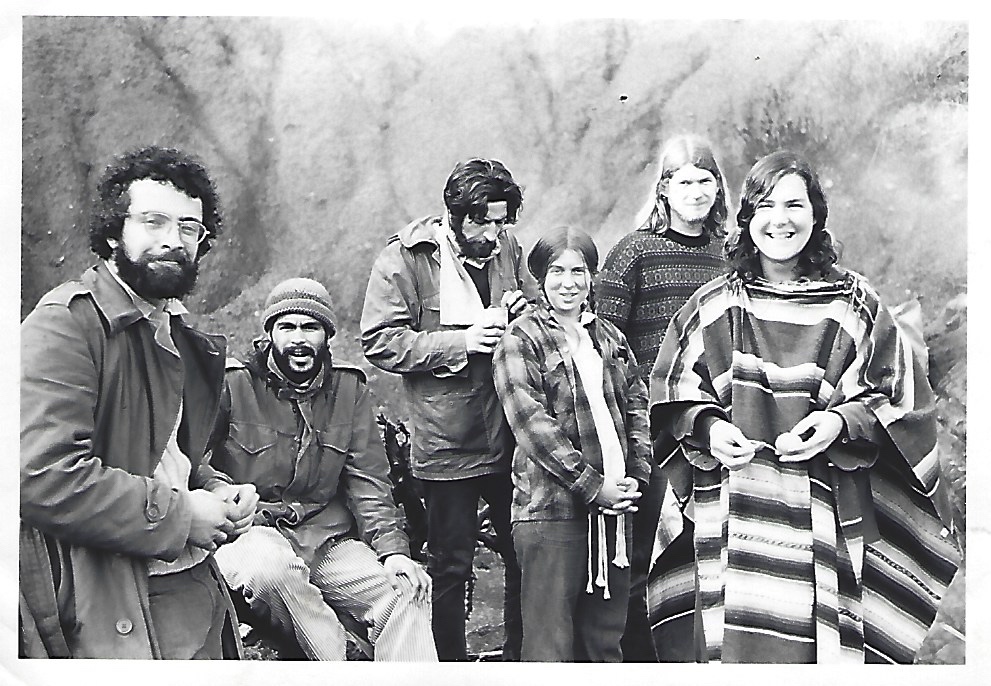
The euphoria did not last, though I never questioned my decision or the reality of my new life. For one thing, the food we ate consisted largely of food commodities heavy on white flour, white sugar, and canned vegetables. After years of eating whole grains and beans, fruits and nuts, and garden produce, I ballooned into a muffin shape. For another, I had no place to call my own. From living alone in a cabin (lonely, to be sure), I went to sharing a bedroom with three other women and having little time to call my own. I actually liked my little space in the bedroom, the bottom bed of a bunk. But shortly a woman arrived with her young son, and I was asked to sleep in the basement family room while she and her son took the bed. Resentfully but silently I gave up my spot and moved. I moved again to the living room of the house where several of the married couples lived. Humbling myself, becoming nothing, had been a message from Buddhism and Hinduism, and fit in well with the monastic view I had of my new faith. On the surface, whatever was asked of me I did, hiding my true feelings and thinking that was the appropriate way to live out the Christian life.
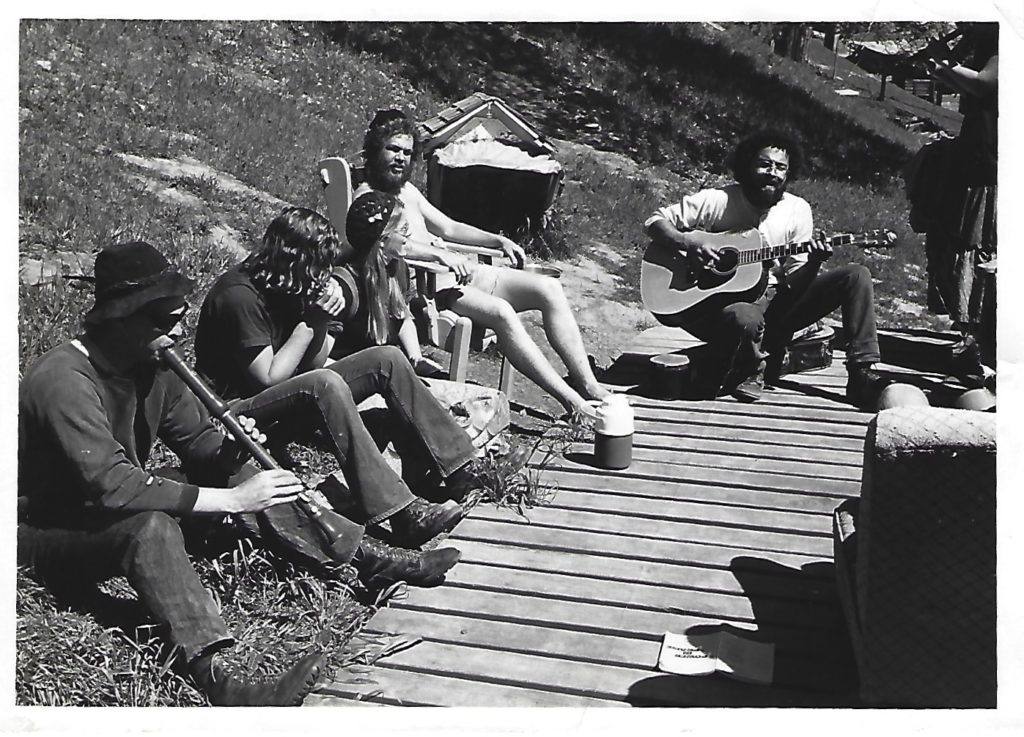
On warm mornings I would take my Bible – a gift from Kathy, a Revised Standard Version that had been her grandmother’s – and find a spot on the hillside to read and meditate on a passage. I didn’t quite understand how I related to it, or it to me. But I knew it talked about this marvelous Jesus who had grabbed my attention. No real teaching took place on the Ranch, and we seldom gathered together for worship, I’m not sure why. I think now that the Ranch leaders were already, in a sense, thinking of moving on. I explored my new faith as best I could, through my Bible reading and through many conversations. On a walk, Theo – another young resident – asked me if I believed that Jesus is the only way of salvation. I said no, I didn’t. He said, “Well, he is.” That was a defining word for me.
In those early days of faith, Miracles abounded. Just one example: One day two people hitchhiked to the Ranch from a hippie-turned-Christian commune called La Tierra Santa near Mendocino on the Pacific coast. One of them was Michael Levine, whom I had known in college and after. Skinny with curly dark hair and wire-rimmed glasses, a doctoral student in chemistry, he had introduced me (and many others) to LSD. I had seen him again in San Francisco. He had spent time on Sri Auribindo’s ashram in Pondicherry, India, and even looked like an Indian yogi. Now here he was, an enthusiastic Christian. He had no idea I would be at this Ranch. How incredible, that we could reconnect in that unexpected way, in the days before cell phones and internet.
Michael said that La Tierra Santa had converted almost en masse to faith in the Lord Jesus. He and his traveling companion, a girl named River, invited us to a gathering of believers at another commune called Living Water (formerly Gopherville). The good news of Jesus Christ was spreading throughout the communes and outposts of northern California. The gathering at Living Water began with a wedding celebration of one of the couples there. Willowy and dressed in hippie finery, they looked like the ideal hippie couple – yet they were believers in Christ! We listened to teaching and sang songs to the Lord and slept outdoors in sleeping bags on beds of straw.
Books and pamphlets circulated among us young believers, stimulating conversation. Some answered my questions; some prompted new and unimagined thoughts about the Lord I now acknowledged and about how his kingdom works.
Pamphlets by Bill Britton fascinated us. They said that only a remnant – only those who overcome – would be in Christ’s new kingdom. Would I be an overcomer? I wondered. We read the writings of Ellen G. White of Seventh Day Adventists. We shared truths we each learned – that Christ needs to be on the throne in our hearts, for instance. We sat on the beds in the mens’ dorm – a converted chicken house, an open space with high ceilings of darkened wood and heavy beams – and shared faith. This was all new to me. I knew nothing of Christianity except for the rituals of the mass and confession. Now my heart awakened to the reality of Jesus Christ, and I wanted to know Him more, to understand this new life I had received.
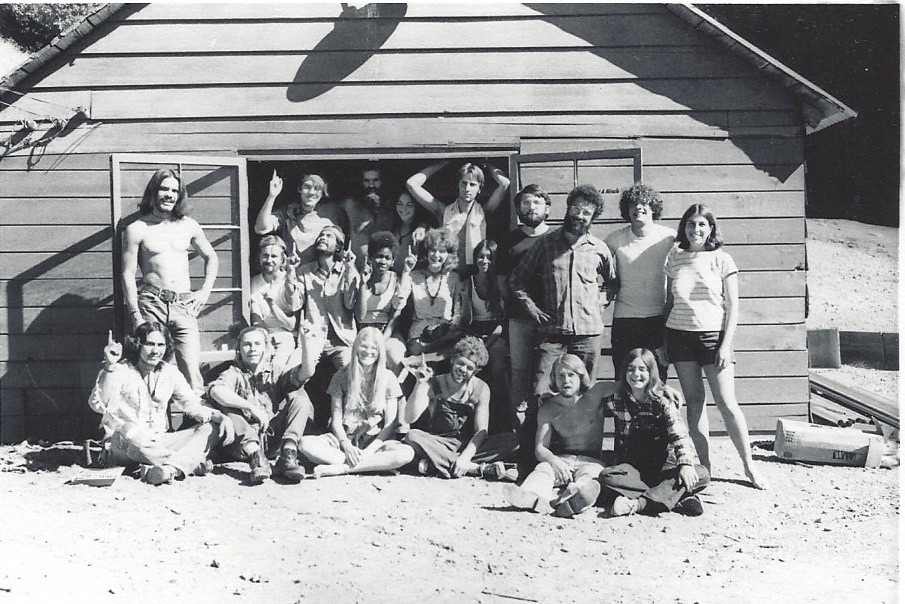
Making the rounds were a series of writings that especially electrified us. They were by Gene Edwards, who led a church in the Santa Barbara area. He was speaking about God’s eternal purpose, and the key role of the church in that purpose, and how the church should look. Gene said the church is the Bride of Christ, and that Christ is its Head. He said that the rituals and forms of traditional churches, in their buildings, with their paid staff, were a bondage. Such churches were like the Babylonian captivity, keeping Christians from being what we were all meant to be. It was heady stuff. We sensed the excitement of the Ranch leaders as well. They waited eagerly for each new transcribed message.
One day while helping to put together a geodesic greenhouse, I was called to the phone. That was a completely strange occurrence. Phones were no longer part of my reality, and no one had a phone number for me. On the phone was Celine, the woman I had met when I went to the little church for the first time. She said that the Lord had put me on her heart, that she had taken a job but needed someone to care for her three-year-old daughter Penny, and she thought of me. Would I do it? I could live at their house, and they would pay me a salary. I said I would think about it.
Nothing could have been further from either my natural gifts or my desires. I didn’t know anything about caring for children. Also, I loved the mountains where we lived. I loved to walk long distances, to pick wild plants for salads, to contemplate the ever-receding mountains that dominated every view. I loved my newfound fellowship with other young men and women as we worked in the leather shop or in the garden. Celine and her family lived in Miranda, a flatland village in the Redwoods.
Nevertheless, a picture came to my mind that attracted me. I envisioned Celine and her family living in a beautiful upper-middle-class home in a wooded area. Celine had told me that they didn’t have a spare bedroom, that I would be sleeping on a couch. I pictured that couch in a lovely den with diamond-paned windows and a dark blue rug and a television set. And the salary sounded nice—some independence, greater freedom of movement. Rather than being moved about like furniture at the Ranch, I would have space of my own and new surroundings.
Weldon’s wife Barbara told me I didn’t have to do it if I didn’t want to. Clearly she saw it as the wrong move. But besides my delightful vision of what life would be like, I had a notion that because Celine had asked me to do this, it must be something the Lord wanted me to do. I didn’t ask anyone’s advice; I agreed to do it, and a day was set for me to begin.
I doubt my earthly belongings even filled a shopping bag at that point. I had left almost everything I owned in my little cabin: most of my books—all the Hindu and Buddhist ones—my records, in the garage where a generator could run the record player, and all the labor I had poured into that funny octagonal-shaped dwelling. I brought with me my guitar, the orange mummy bag given me by some passing acquaintance, and my few items of clothing. To Celine’s I brought jeans, hiking boots, a jacket, and my Bible.
Pat and John drove me down to my new home and job. I could tell they were reluctant, but they didn’t try to talk me out of it. When he pulled up to the address Celine had given, my heart sank. I beheld a small white cracker box of a house, unadorned by anything beautiful, fronted by a weedy lawn and a cracked asphalt walk. A redwood forest was close, right across the highway, but no trees broke the stark ugliness of the neighborhood where Celine and her family lived. I wanted to turn around right there, drive back up the mountain with Pat and John who suddenly seemed unexpectedly dear. Maybe it was pride that kept me from telling them to take me home. Maybe, just maybe, it was a sense of honor: I had agreed to do this, now I needed to do it. But when the car stopped in front of that little house, all my illusions about a pleasant refuge fled away.
I met Celine’s husband, Ben—a raw-boned working man, a janitor at the local elementary school—and her children, two boys and the little Penny who would be my daily companion. That evening for dinner we had tomato soup and saltines, which after my years of eating well did not even seem like food to me. After dinner, I joined the family for a time of worship and prayer. My sleeping quarters were in the very same room, on the faded, sagging once-white couch.
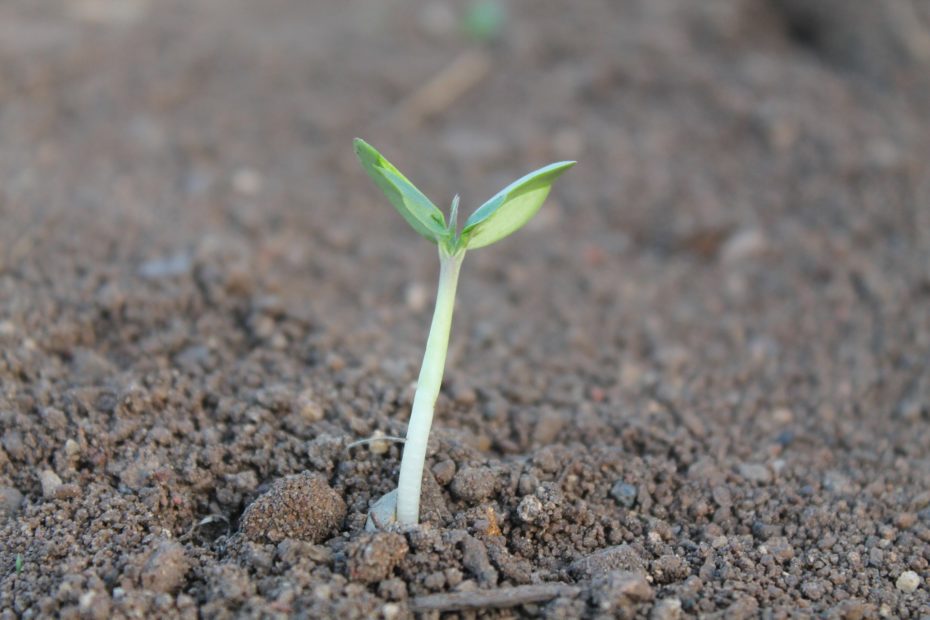
How many times in life have we each imagined what something would be like, only to discover we had it all wrong!
I’m so proud of you! What a great picture of this season you are painting with your words! Xx Gincy
Gincy, your words mean especially much to me! Thank you for your encouragement, and the push that our little (short!) class gave me.
Great testimony, Ann!
Looking forward to reading more!
Her dreams are off and Rosie. Reality is often stark. I’m hoping you will find those two little children jewels and joys in your life.
Annie, very interesting and so glad to read of this time in ur life. May the Lord breathe rival once again in America.
Fascinating and dear. The chronicle of an epic journey that, though distant and unique take me back to my own. You take me right there with you. Not only in the external surroundings but in your interior transparent thoughts. Thank you for such precious disclosure.
Like!! Really appreciate you sharing this blog post.Really thank you! Keep writing.
You must have kept a diary of these times. This whole blog and website is a vivid and important record of the communal youth culture of the late sixties and early seventies. I knew a number of the persons described who were a part of the Rising Son Ranch who later moved to Isla Vista be a part of Gene Edwards church. Thanks for your personal story and that of many others.